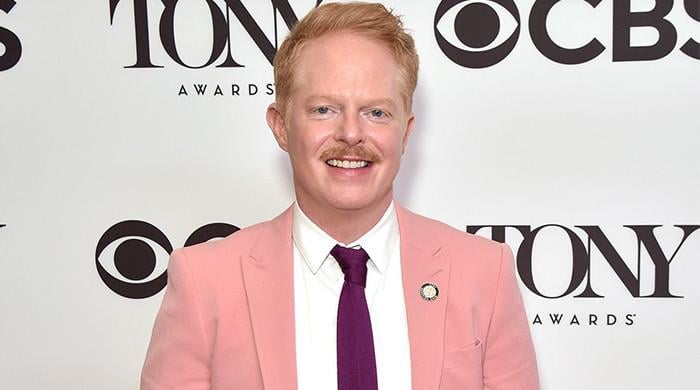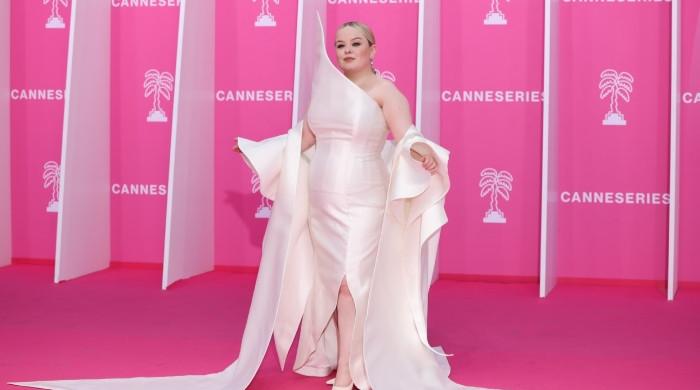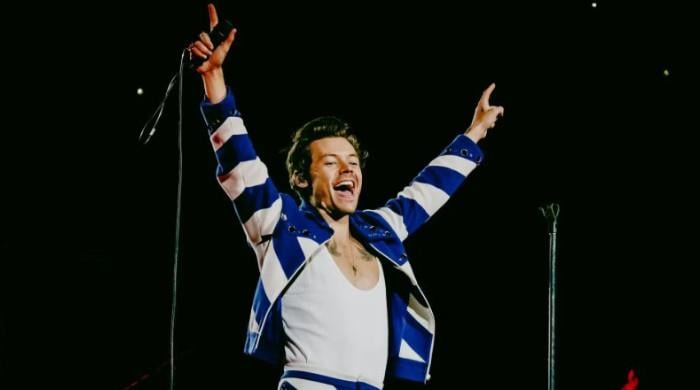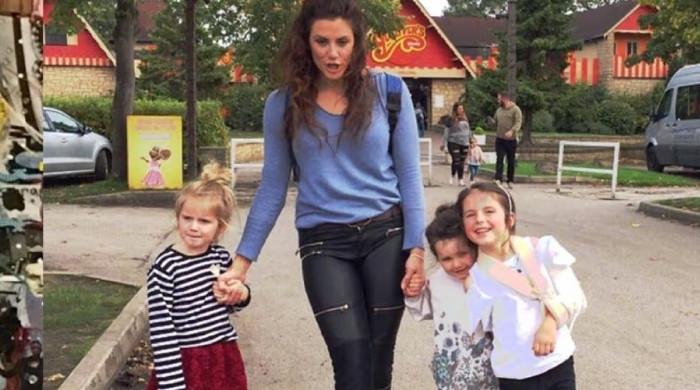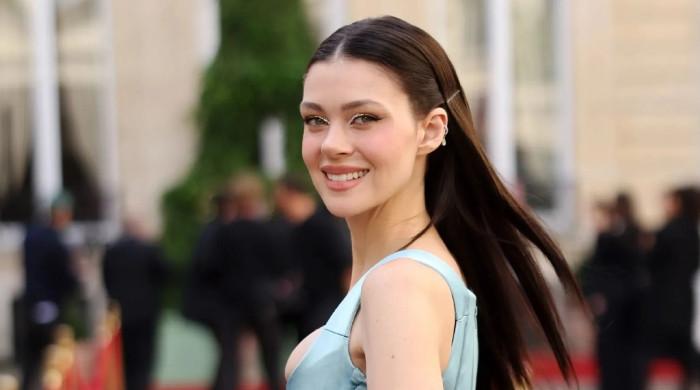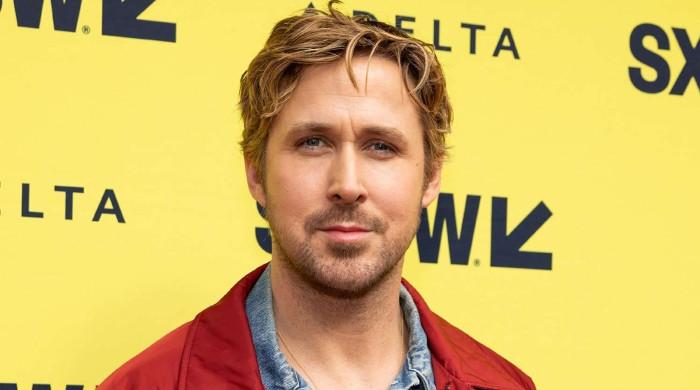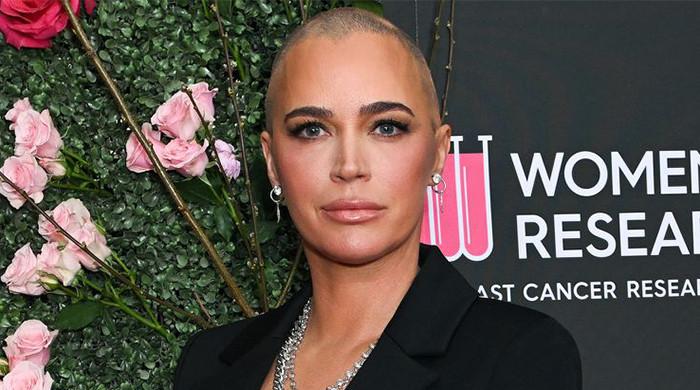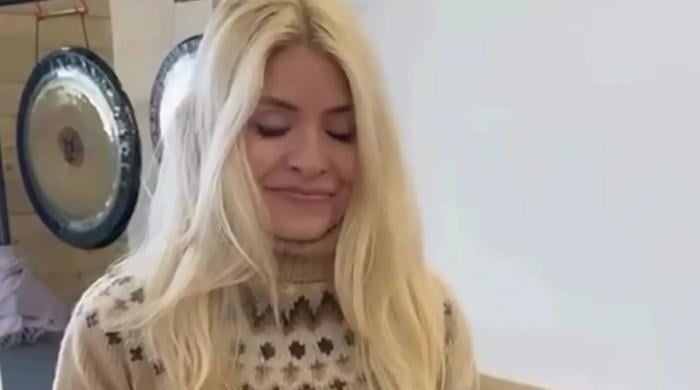Remembering the great 'Rafi'
Rafi enthralled millions with his magical voice, nearly for four decades
December 24, 2016
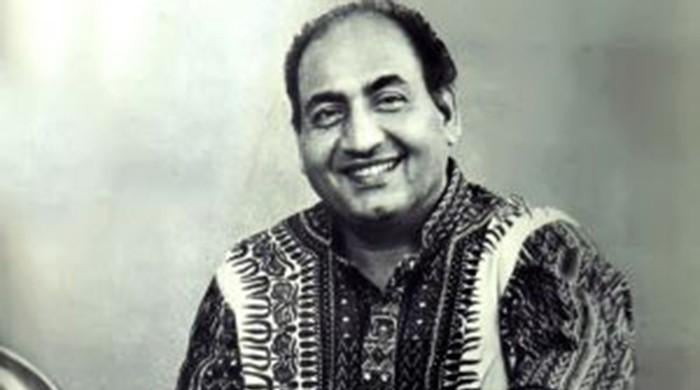
Muhammad Rafi, the name needs no introduction to music lovers, as he is still considered to be the best playback singers from the subcontinent. Due to his versatility, the legendary director-producer Manmohan Desai dubbed him as the ‘Voice of God’.
One of his last hits, 'Chal Mere Bhai' from one of many Manmohan Desai's hits ‘Naseeb’ was recorded somewhere in mid 1979. ‘Somehow’ it became famous and the airwaves carried it across the border. Cricketer turned TV analyst, Sikandar Bakht revealed to me that it was after the famous Delhi Test, when he took 11 wickets against India, in December 1979 that he had a surprise meeting with musicians Laxmikant-Pyarelal in Mumbai. The duo was surprised to hear the ‘tormentor-of-Indian-team’ sing the song, even before its official release. They, along with their friends and family, were shocked to know when ‘Sikku Bhai’ told them that their song not only found its way ‘across the border’ but was also a regular in wagons.
There is another interesting story attached to the song. Megastar Amitabh Bachchan was to sing with Muhammad Rafi, who was supposed to ‘play back’ for a much younger Rishi Kapoor. A day prior to the recording, the music director told 37-year-old Amitabh to be punctual as the legendary Rafi Sahab was always on time. Next day, both ‘singers’ reached the studio at the same time, but Amitjee, the ‘filmi’ young angry man, was shaky and nervous in real life.
When asked about the reason, the veteran got a simple answer, “Rafi Sahab, I have been listening to your songs since I was ten. Today when I have got the opportunity to sing with you, I have not been able to sleep the entire night.”
It is true, Muhammad Rafi, born on 24th December 1924, started taking interest in music at a time when Amitabh Bachchan, born in 1942, was a mere toddler.
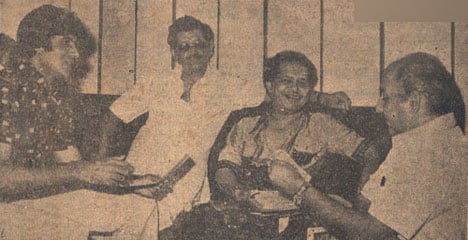
Rafi enthralled millions with his magical voice, nearly for four decades. He was the voice of the leading heroes in late 40s and when he died, he was still singing for actors playing lead roles. Rafi had play backed for actor-director Raj Kapoor in 50s, while lending his voice to his sons Randhir and Rishi in 70s. The combination was so perfect that Anu Malik, a musician who had surprisingly composed for Rafi for film ‘Poonam’ in 1980, had to pick a Rafi clone for movies of Raj Kapoor’s third son Rajiv.
Naming the hits of Rafi would definitely need another article, as one cannot limit his songs and his association with music directors might need a book. He was a versatile singer and had sung thousands of hits. Guru Dutt’s ‘Chaudhvin ka Chand’ had the loving title song for the lead as well as a ‘Mera Yaar bana hai dulha’ a funky number for Johnny Walker. He was a musician’s dream as he had a great command over words, and a perfect knowledge of what the director wanted.
A tailor made voice for a rebellious Shammi Kapoor, he was behind the ‘yahoo’ star from the moment he appeared in his new avatar in Nasir Hussain’s ‘Tumsa nahi dekha’. Shammi’s transformation from a superstar to a character actor happened during Rafi’s lifetime and the last song Rafi sahib rendered for the ‘now’ big and bearded man was in 1979’s Dharamendra-Zeenat Aman starrer ‘Shalimar’.
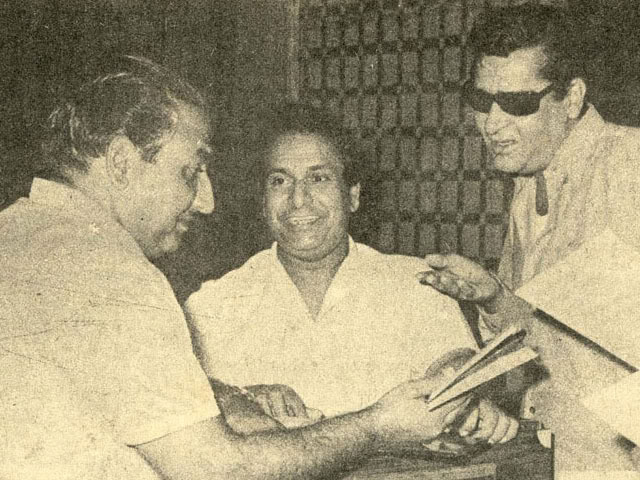
Same was the case for Dilip Kumar. Formerly known as Yusuf Khan, he and Muhammad Rafi literally started their careers together. They were so famous that years later, Waheed Murad’s character of Nasir, who was helping his friend Shahid, played by Nirala, understand the playback technique in superhit ‘Armaan’, simply said, ‘‘tu nay Hindustani Pakistani filmain dekhi hain?? gaata hai Rafi ya Rushdi, aur hont hilatay hain santosh kumar, dilip kumar’’.
Dilip Kumar appeared as a lead till 1976’s box office dud ‘Bairaag’. Rafi sahib was there for three songs. The ‘tragedy-king’ was, by then, entering the wrong part of 50s and had decided to take up character roles. No points for guessing who his voice was, when he opened his lips for ‘mera chana hai apni marzi ka’, when hanging for life with Manoj Kumar in 1981’s Superhit ‘Kranti’.
Rafi remained the voice for Dharamendra, Sunil Dutt, Rajendra Kumar, Shashi Kapoor, Raaj Kumar from late 50s till late 70s. He was very much successful in launching the careers of Jumping-Jack Jeetendra, the Indian cowboy Feroz Khan and actor-producer Sanjay Khan in the later part of the 60s.
Rafi’s music career spanned from 1944 till 1981. No one can match that for sure.
Kishore Kumar and Ahmed Rushdi were his contemporaries who could be considered somewhat his equal, but somehow lacked one thing or the other. Kishoreda had a ‘not-so-good’ command over Urdu, despite having perfect chemistry with the actor and director. He later became a rival, but never a threat.
Ahmed Rushdi, a master of expressions, had an excellent command over the language, adjusted his voice to actors perfectly and had excellent range. The voice behind hundreds of popular Pakistani songs was never a threat to Rafi, because of the deteriorating condition of Pakistan film industry and eventually, of the man himself.
Famous TV singer Efrahim, who migrated to Pakistan in early 60s, had been a student of Rafi earlier. He later performed with ‘pioneer of pop music in Pakistan’ Ahmed Rushdi and consider ‘Rushdi’, an equal of ‘Rafi’.
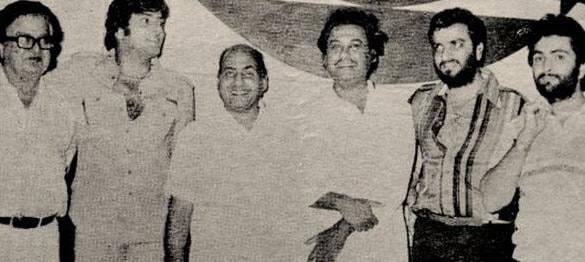
All was not well for Rafi in his 37-year career. There was a time when he was thinking to quit music. It was the entry of superstar Rajesh Khanna in 1969, the rise of Kishore Kumar and the change in music, which made him think of a semi-retirement. Rafi, who had been around for 25 years, adjusted his style and returned with a bang. He became the voice of even younger actors, some who were born when Rafi was in his prime. Rishi Kapoor, the second son of Raj, born in 1952, considers himself lucky to have ‘lip synced’ over a dozen songs of the great man.
Rafi’s voice was ageless. He had been the voice of character actor Jayant as well as his son Amjad Khan, famous for his role of Gabbar in film Sholay.
Rafi sahab sang for over a hundred faces and made each one looked like his own. Actors who were trying to make it big in the latter part of the 70s, owe it big time to Rafi. Mithun Chakravorty, Naseeruddin Shah, Raj Babbar, Raj Kiran, Amol Palekar, Mazhar Khan, Kader Khan, Danny Denzonpa and even Sachin, the young Ahmed from Sholay, all have been faces to Rafi’s voice.
Bappi Lahri saved one of Rafi sahab’s song and used it in 1989 hit, ‘Farz ki Jung’. ‘’Phool ka Shabaab kiya, Husn mahtaab kia, aap tu bus aap hain, aap ka javaab kia’’ was picturised on Govinda, making him the last of the faces who had a Rafi voice.
Muhammad Rafi died on 31st July 1980 because of a massive heart attack. He is buried at the Juhu Muslim cemetery and his was one of the biggest funeral processions Mumbai had ever witnessed. Amitabh Bachchan was there to lay him down in the grave, for his eternal sleep. India’s biggest superstar was laid to rest forever and in his own words…
jub kabhi bhi suno gay geet mere, sung sung tum bhi gun guano gay!
Rafi was truly the biggest star to have shown at Indian music industry. Just a year back, before the recording of the song ‘Chal mere bhai’, a nervous Amitabh Bachchan, was miraculously calmed down by Rafi. During the funeral, those words must be going through Bachchan’s minds. The legends’ reply in Punjabi to his junior singer was, “Dost, sleep also left me; as I have to sing with a much big superstar.” Hearing this, Amitabh Bachchan, the superstar of the day, fell to Rafi Sahib’s feet.
There can never be a bigger superstar than the man known to the world as Muhammad Rafi.




